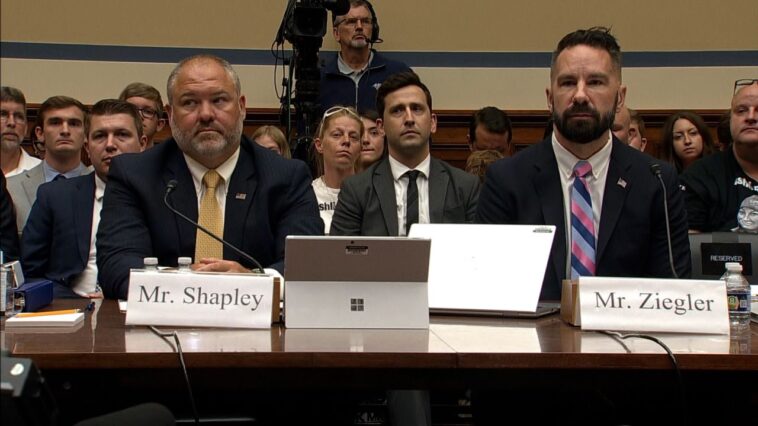Dr. Kevin O’Connor, the White House doctor during the Biden administration, has surprisingly requested a delay for his upcoming testimony before the House Oversight Committee scheduled for this week. Citing concerns over doctor-patient privileges, O’Connor’s defense has brazenly sought to pull proceedings off the docket until sometime near the end of July or early August. This sudden stall ahead of a highly-anticipated testimony beam a spotlight once again on the secrecy shrouding Biden’s administration.
The written application to the committee by O’Connor’s legal representative was sent this past Saturday, and it revealed the intent behind the move. Strikingly, the goal of the rescheduling of O’Connor’s appearance was to buy time to establish an agreement protecting ‘substantial privilege and confidentiality interests’ of the former White House physician and his one-time patient, ex-President Biden.
Adding intrigue to the situation, O’Connor’s set testimony has been anticipated as a key element of the committee’s probe into the cognitive competence of Biden during his presidency spanning 2021 to 2025. The item raising eyebrows and questions: Biden’s specific use of an autopen to enact legislation. Republicans haud the reigns of Congress and a significant share of public sentiment now echo concerns over a seemingly opaque Biden presidency.
Allegations have started swirling, predominantly coming from Republicans in control of Congress and amongst citizens alike, implying that Biden’s cognitive decline was skillfully cloaked by his coterie while in office. Critics argue that Biden’s staff effectively puppeteered his administration, engaging an electronic autopen to inscribe their agenda into law under Biden’s name.
The former president, now aged 82, stands steadfast against these claims of mental incapacitation during his term. He has roundly dismissed accusations that his mental state was weak during his stay in the Oval Office. However, the dissent is widespread, clouding Biden’s legacy in stark doubt.
Replicating the line of the GOP-chaired Oversight Committee, a spokesperson mentioned that House deposition guidelines would ensure witnesses can plea privilege on each question. The Committee chairman will then pass a judgement on the validity of these claims. Nonetheless, doubt lingers over Dr. O’Connor’s capacity to defer or reject a Congressional subpoena due to these worries over privileged information.
Unyielding in their stance, the House Committee does not authorize O’Connor to evade, or further delay a congressional subpoena claiming apprehension over inquiries into potentially privileged conversations. In a striking revelation, O’Connor’s legal defense highlighted the House committee’s stubborn denial to entertain any of their objections connected to privileged protection.
Sounding the alarm, O’Connor’s lawyer described the Committee’s disregard for accommodation as ‘unprecedented’ and ‘alarming’, portending a threat to the broader principles of medical confidentiality. The fear of setting off a domino effect on patient-doctor privacy across the United States looms large as a result of this refusal to accommodate.
Furthermore, warnings have been issued concerning the severe implications O’Connor might encounter for infringing upon his professional duties as a physician. Among the harshest of potential repercussions offered include the revocation of his hard-earned license to practice medicine.
Throwing a hard-right punch, the Committee Chairman, James Comer, rebuffed O’Connor’s summoning based on claims of patient-physician privilege with a punchy retort. The Physician-patient privileges as touted on the basis of the American Medical Association’s (AMA) code of ethics, according to Comer, deserve no consideration, as they form no part of binding federal law.
Parading the Committee’s adherence to the ethical guidelines of the AMA, Comer claimed that the issued subpoena complies with the expectation that doctors should impart their patients’ medical information if legally coerced to captulate. Clearly, he drew a battle line for the court clash that the subpoena is legally sanctioned and must be obeyed.
Comer’s argument that the Committee’s subpoena aligns with the AMA’s mandate may seem odd. The mandate requires physicians to share their patient’s medical information if under legal obligation or ordered by legitimate authorities. This confrontational stance embodies the deep-seated distrust and quest for the truth that has become the leading sentiment of the GOP-led House Oversight Committee.

